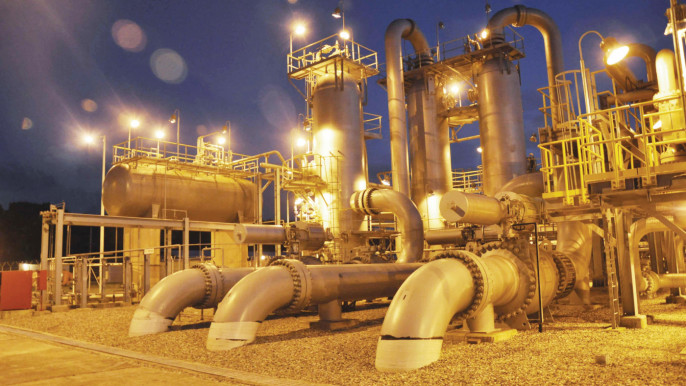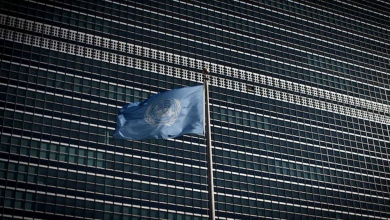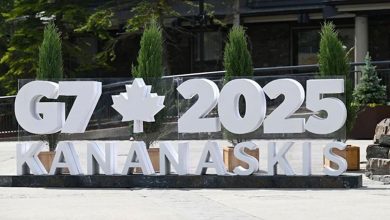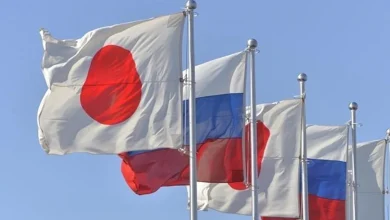Industries grappling with persistent gas crisis

Govt reluctant to increase spending on LNG imports further
Industries have been grappling with a long-standing crisis of gas – a vital energy required to keep their wheels running – for years, with little improvement despite repeated government assurances to address the issue.
The interim government – formed in early August following the fall of the Sheikh Hasina government amid a mass uprising – attributes the crisis primarily to the declining gas supply from domestic sources.
Additionally, given the current economic conditions and foreign exchange reserve situation, the government is reluctant to increase spending on the import of Liquefied Natural Gas (LNG) further to ease the shortage.
During a programme organised by the Economic Reporters Forum in the capital yesterday, Power, Energy, and Mineral Resources Adviser Muhammad Fouzul Kabir Khan acknowledged the ongoing crisis affecting industries – particularly gas-intensive ones – and its worsening impact.
“Bangladesh requires around 4,000 million cubic feet per day (mmcfd), including imported energy, but the current supply is under 3,000 mmcfd, leaving a supply deficit exceeding 1,000 mmcfd, which is worsening,” he said.
“The primary reason for the shortage is the decreasing local production.”
The energy adviser highlighted the financial burden, saying the country needs to spend Tk6,000 crore annually on LNG imports, and it is not feasible to increase this further.
He further said the situation is unlikely to improve until new gas fields are developed in the country. “We are planning to drill new gas fields,” he added.
The Business Standard spoke to eight entrepreneurs from the textile, ceramic, and steel sectors, all of which heavily rely on gas. Almost all reported gas shortages.
While the gas supply situation had slightly improved in certain areas such as Narayanganj, Gazipur, and Mymensingh, it was still insufficient for normal production, they said.
Entrepreneurs in regions such as Savar, Narayanganj, Dhamrai in Dhaka, and Manikganj reported no noticeable improvement.
Mahmud Hasan Khan Babu, managing director of Rising Spinning Mills Limited, said, “There has been no improvement in the gas supply to my spinning mills in Manikganj. Our approved gas pressure is 15 PSI, but sometimes, it is almost zero. We are considering relocating our factory to another area.”
He added that over 100 gas-reliant factories from Dhamrai to Manikganj are experiencing gas shortages and exploring alternatives.
Md Masadul Alam, managing director of Shahriar Steel Mills Limited in Jatrabari, said the gas shortage’s impact was minimal due to low demand for steel products. However, he predicted that when demand increases, the severity of the crisis will become more apparent.
On 28 November, Mahmud Jeans Limited, a factory in the Chandra area near Gazipur that recently shut down, was scheduled to pay dues. Rafi Mahmud, the factory’s deputy managing director, was assaulted by workers after it failed to pay due wages.
On the following Friday, the Bangladesh Garment Manufacturers and Exporters Association (BGMEA) said the factory had already been facing inadequate gas pressure, which hindered smooth production and forced it to shut down.
Fazlul Hoque, a former president of the Bangladesh Knitwear Manufacturers and Exporters Association (BKMEA) and owner of a factory in Narayanganj, acknowledged that while there had been some recent improvements in gas supply, it was still insufficient.
Khorshed Alam, chairman of Little Star Spinning Mills Limited, said although the gas supply had improved about a month ago, the situation had deteriorated again.
Ceramic industry incurs Tk20cr loss daily
On 25 November, the Bangladesh Ceramic Manufacturers and Exporters Association (BCMEA) wrote a letter to the power, energy, and mineral resources adviser, highlighting the severe gas shortage and calling for improvements in supply.
The letter, signed by Senior Vice President Moynul Islam, explained that ceramic factories requiring a pressure of 15 PSI sometimes experienced drops to as low as 2-3 PSI or even zero, resulting in daily production losses of over Tk20 crore.
The BCMEA reported that around 25 ceramic factories in areas such as Dhaka, Narayanganj, Gazipur, Narsingdi, and Mymensingh had been facing severe gas shortages for over a year. The letter warned that failure to address the issue could lead to industry instability.
It cited past cases where some industries had become non-viable due to gas supply interruptions, preventing them from repaying bank loans. The resulting increase in loan defaults could lead to disputes, factory closures, worker layoffs, and chaotic situations.
Moynul Islam told TBS that often factories near the Dhaka-Aricha Highway could barely operate for two hours a day. Most entrepreneurs were trying to find alternative solutions, such as using CNG, to maintain production.
“We would be able to bounce back again if the gas supply improved,” he added.
Petrobangla yet to find solution
Md Kamruzzaman Khan, director of Petrobangla, said while there had been some recent improvement in the gas supply situation, there was little hope for further progress unless LNG purchases were made.
“There is no room for further improvement beyond what we have now,” he told TBS.
Entrepreneurs, however, disagree with Petrobangla’s stance.
Showkat Aziz Russell, president of the Bangladesh Textile Mills Association, pointed out, “The government has been charging us extra with the assurance of an uninterrupted gas supply. Why, then, is the supply still not uninterrupted?”
“If they cannot deliver, our money should be refunded,” he told TBS.
In early 2023, the government more than doubled gas prices with the promise of ensuring an uninterrupted supply. However, despite several subsequent commitments, there have been no visible improvements.







